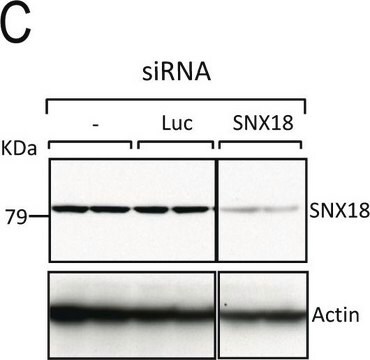SAB1305546
MONOCLONAL ANTI-BETA-ACTIN antibody produced in mouse
clone 8H10D10, IgG fraction of antiserum, buffered aqueous solution
Synonym(s):
ACTB, Actin, cytoplasmic 1, Actin, cytoplasmic 1, N-terminally processed, Beta-actin
About This Item
Recommended Products
biological source
mouse
Quality Level
antibody form
IgG fraction of antiserum
antibody product type
primary antibodies
clone
8H10D10, monoclonal
form
buffered aqueous solution
mol wt
41737 Da
species reactivity
human
technique(s)
immunohistochemistry: 1:10-1:50
western blot: 1:2000-1:10000
NCBI accession no.
UniProt accession no.
shipped in
wet ice
storage temp.
−20°C
target post-translational modification
unmodified
Gene Information
human ... ACTB(60)
Application
Western Blotting (1 paper)
Physical form
Disclaimer
Not finding the right product?
Try our Product Selector Tool.
Storage Class Code
10 - Combustible liquids
Flash Point(F)
Not applicable
Flash Point(C)
Not applicable
Certificates of Analysis (COA)
Search for Certificates of Analysis (COA) by entering the products Lot/Batch Number. Lot and Batch Numbers can be found on a product’s label following the words ‘Lot’ or ‘Batch’.
Already Own This Product?
Find documentation for the products that you have recently purchased in the Document Library.
Our team of scientists has experience in all areas of research including Life Science, Material Science, Chemical Synthesis, Chromatography, Analytical and many others.
Contact Technical Service








